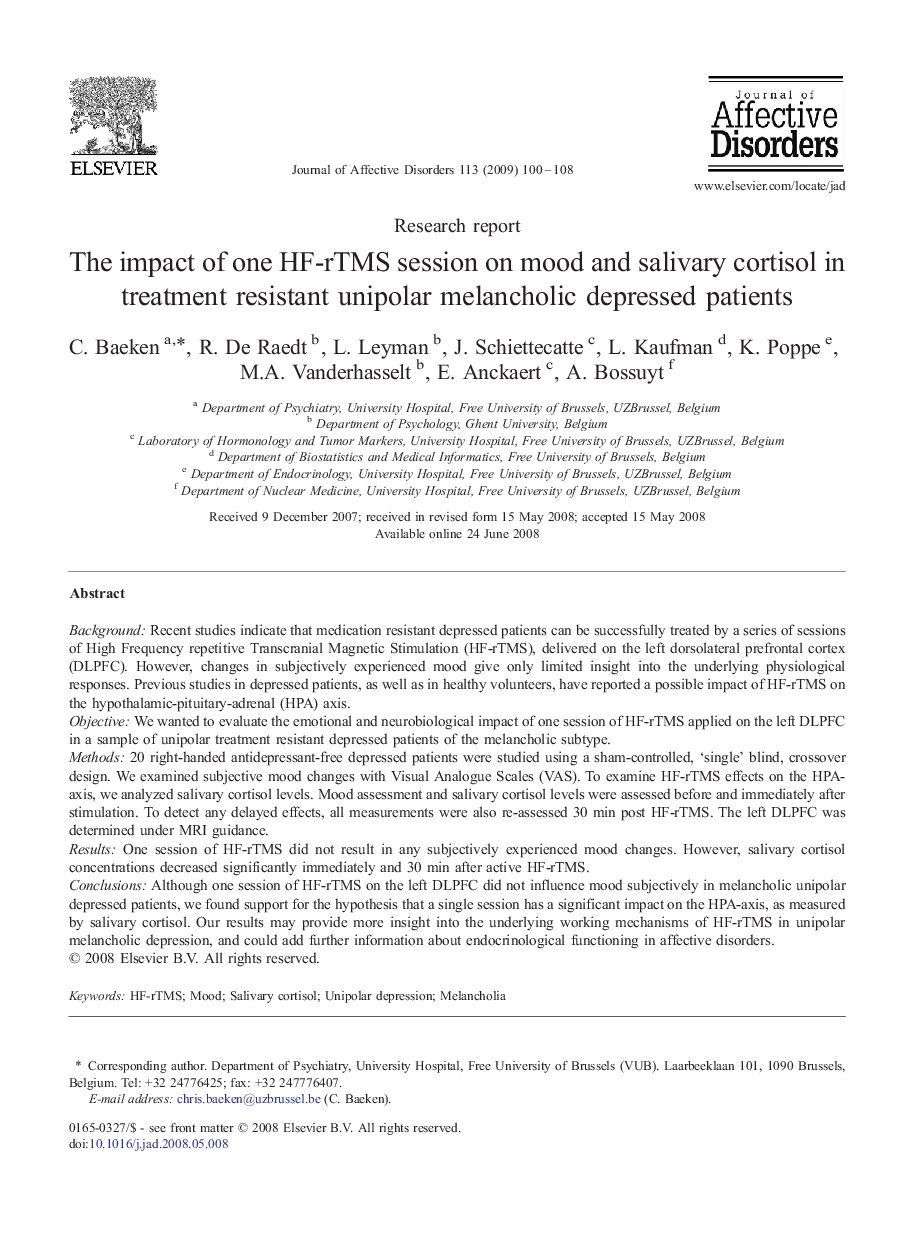| Article ID | Journal | Published Year | Pages | File Type |
|---|---|---|---|---|
| 4187268 | Journal of Affective Disorders | 2009 | 9 Pages |
BackgroundRecent studies indicate that medication resistant depressed patients can be successfully treated by a series of sessions of High Frequency repetitive Transcranial Magnetic Stimulation (HF-rTMS), delivered on the left dorsolateral prefrontal cortex (DLPFC). However, changes in subjectively experienced mood give only limited insight into the underlying physiological responses. Previous studies in depressed patients, as well as in healthy volunteers, have reported a possible impact of HF-rTMS on the hypothalamic-pituitary-adrenal (HPA) axis.ObjectiveWe wanted to evaluate the emotional and neurobiological impact of one session of HF-rTMS applied on the left DLPFC in a sample of unipolar treatment resistant depressed patients of the melancholic subtype.Methods20 right-handed antidepressant-free depressed patients were studied using a sham-controlled, ‘single’ blind, crossover design. We examined subjective mood changes with Visual Analogue Scales (VAS). To examine HF-rTMS effects on the HPA-axis, we analyzed salivary cortisol levels. Mood assessment and salivary cortisol levels were assessed before and immediately after stimulation. To detect any delayed effects, all measurements were also re-assessed 30 min post HF-rTMS. The left DLPFC was determined under MRI guidance.ResultsOne session of HF-rTMS did not result in any subjectively experienced mood changes. However, salivary cortisol concentrations decreased significantly immediately and 30 min after active HF-rTMS.ConclusionsAlthough one session of HF-rTMS on the left DLPFC did not influence mood subjectively in melancholic unipolar depressed patients, we found support for the hypothesis that a single session has a significant impact on the HPA-axis, as measured by salivary cortisol. Our results may provide more insight into the underlying working mechanisms of HF-rTMS in unipolar melancholic depression, and could add further information about endocrinological functioning in affective disorders.
